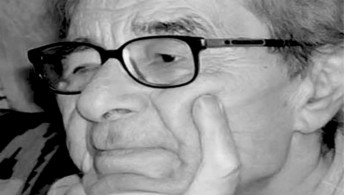Egyptian literary and linguistic great, Sulaiman Fayyad, passes away
After a long struggle with an illness, Egyptian novelist Sulaiman Fayyad passed away on Thursday, 26 February, aged 86.
The novelist was considered to be one of the most prominent Egyptian writers of his generation, and became known in the Arabic literary world as "Sulaiman, the wise one".
Fayyad was born in 1929 in a small al-Dakhliya village, and started his career by writing for a number of Egyptian magazines.
He later became a writer at The Republic, and then the Cairo correspondent for the Lebanese publication Arts. At Creativity magazine he became the deputy editor, and then moved into writing radio scripts.
His first literary stories to be published were in 1961 in the realism genre, entitled I’m Thirsty, My Girls, followed by June Sorrows, Death of a Printing Press Worker and Brown-eyed.
Fayyad also wrote several novels, including Voices, which was translated into three languages, and The Time of Silence and Fog. He also published the popular novellas Image and Shadow, Spouse, No One and The Eloquent Farmer.
In his autobiography Adjacent Days, he wrote about his experiences at Al-Azhar University, where he studied Arabic.
He continued his passion for Arabic throughout his career, writing a series of linguistic works on the language, and working on the Arabic computer project Arabisation.
| His interest for classical Islamic culture saw him author The Other Side of the Caliphate. |
Fayyad also wrote a series of books on the most prominent Arabic and Islamic figures in science and art, including biographies on Ibn al-Nafis, Ibn Battuta, and Ibn-Sina.
His interest for classical Islamic culture saw him author The Other Side of the Caliphate.
Throughout his career, Fayyad was awarded several important recognitions for his contribution to literature, including the State Incentive Award in 1970 for his collection After Us There Will Be a Flood.
In 1994, Fayyad collected the Sultan al Owais award from the UAE, and he added the Excellence in Arts award in 2002.
In spite of these recognitions of his talent he was known for his modesty, avoiding the limelight and never mentioning his time as a volunteer with the Palestinian fedayeen.
In his final months, Egypt's ministry of culture paid for Fayyad's medical treatment - but it was too late and the writer lost his battle with cancer.
This article is an edited translation from our Arabic edition.


![President Pezeshkian has denounced Israel's attacks on Lebanon [Getty]](/sites/default/files/styles/image_684x385/public/2173482924.jpeg?h=a5f2f23a&itok=q3evVtko)



 Follow the Middle East's top stories in English at The New Arab on Google News
Follow the Middle East's top stories in English at The New Arab on Google News


